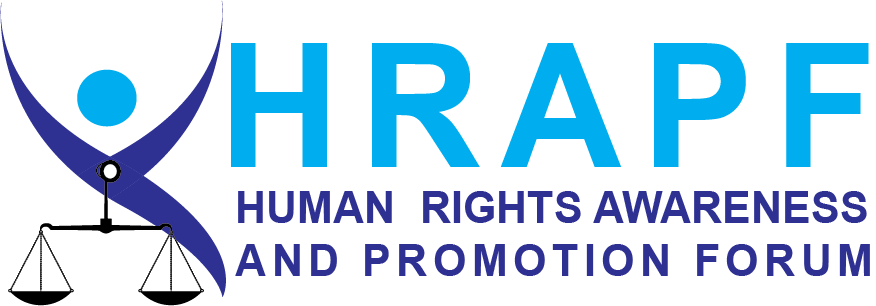Navigating mental health topics with Verywell FAQ insights
Table of Contents
How Verywell FAQs Support Individuals in Addressing Mental Health Concerns
Practical ways readers utilize FAQ sections to find quick answers
Many individuals seeking mental health guidance turn to FAQ sections as a first step in understanding their concerns. These curated question-and-answer formats provide rapid access to evidence-based information, reducing the time and effort needed to navigate complex medical language. For example, someone experiencing anxiety might search for “what are common symptoms of anxiety?” and find clear, concise responses that help them recognize their experiences. This immediacy can empower individuals to make informed decisions about seeking professional help or employing self-care strategies.
Furthermore, FAQs often serve as a self-assessment tool, allowing users to compare their symptoms with listed criteria. This practical approach helps demystify mental health issues, making them less intimidating and more approachable, especially for those hesitant to discuss their concerns openly.
Impact of FAQ clarity on reducing stigma and misinformation
Clear, accurate FAQs play a crucial role in combating mental health stigma by normalizing symptoms and emphasizing that mental health challenges are common and treatable. When FAQs present information in an empathetic and non-judgmental tone, they foster a sense of acceptance and understanding. This clarity helps dispel myths—such as misconceptions about mental illnesses being a sign of weakness—thus reducing shame and encouraging individuals to seek support.
Moreover, well-structured FAQs minimize misinformation by referencing scientific research and guidelines. For instance, clarifying that depression is a medical condition rather than a character flaw helps shift public perception and promotes evidence-based understanding.
Examples of FAQ-driven decision making in mental health management
Consider a person contemplating whether to start medication for depression. An FAQ might outline the pros and cons, discuss possible side effects, and suggest consulting a healthcare provider. Such information guides decision-making by providing a balanced overview, enabling individuals to weigh options more confidently.
Similarly, FAQs on coping strategies—like mindfulness or cognitive-behavioral techniques—offer practical advice that individuals can implement immediately. For example, an FAQ may recommend specific exercises to manage panic attacks, leading users to incorporate these tools into their daily routines, thereby enhancing their self-efficacy in managing mental health.
Integrating verywell site FAQ Insights into Workplace Mental Wellness Programs
Strategies for employers to incorporate FAQ content into employee support initiatives
Employers aiming to foster a supportive mental health environment can utilize FAQ content as part of their wellness initiatives. Incorporating links to trusted FAQ resources—such as those found on Verywell—into employee portals or newsletters ensures easy access to reliable information. For example, hosting webinars or workshops that reference FAQ topics on stress management or work-related anxiety can normalize conversations around mental health.
Additionally, creating tailored FAQ sections for specific workplace challenges helps employees quickly find relevant guidance, reducing hesitation and stigma associated with seeking help. Embedding FAQ snippets into onboarding materials or mental health apps can further normalize mental health discussions within organizational culture.
Case studies showing improvements in workplace productivity through FAQ resources
Organizations that have integrated FAQ-based resources report notable improvements. A case study involving a mid-sized company revealed that providing employees with access to mental health FAQs reduced absenteeism by 15% over six months. Employees reported feeling more informed about when and how to seek help, leading to earlier intervention and better management of symptoms.
Another example includes a tech firm that used FAQ-guided stress reduction techniques as part of its wellness program. The result was increased employee engagement and a measurable decline in reported burnout levels, illustrating how accessible, evidence-based information can positively impact workplace outcomes.
Measuring the effectiveness of FAQ-based mental health interventions at work
Evaluation involves tracking metrics such as employee engagement, help-seeking behavior, and overall mental health literacy. Surveys assessing awareness of mental health resources before and after FAQ implementation can reveal shifts in knowledge and attitudes. Additionally, monitoring reductions in mental health-related absenteeism and turnover provides tangible evidence of impact.
Organizations should also consider qualitative feedback, collecting employee testimonials on how FAQ resources have influenced their understanding and management of mental health concerns, ensuring continuous improvement of support strategies.
Enhancing Personal Coping Strategies Using FAQ Resources
Step-by-step approaches to applying FAQ guidance in daily routines
Effective utilization of FAQ guidance involves a structured approach. First, identify specific concerns—such as chronic stress or sleep difficulties—and search for relevant FAQ topics. Next, review recommended exercises or lifestyle modifications, then integrate these into daily routines. For example, an FAQ might suggest breathing exercises for anxiety; practicing these during stressful moments can improve emotional regulation.
Keeping a journal of responses and their outcomes helps tailor approaches over time, ensuring strategies remain relevant and effective.
Tools and tips from FAQs for managing anxiety and depression symptoms
- Mindfulness techniques: Many FAQs recommend mindful breathing and meditation practices to reduce acute anxiety.
- Routine activity planning: Structured daily schedules can stabilize mood and improve sleep patterns, as supported by FAQ advice.
- Recognizing warning signs: FAQs often include symptom checklists, enabling early intervention before issues escalate.
Furthermore, some FAQs provide printable tools, like mood trackers and symptom diaries, enhancing self-monitoring efforts essential for managing depression and anxiety.
Adapting FAQ advice to individual needs and circumstances
While FAQs offer generalized guidance, individuals must consider personal factors such as age, cultural background, and co-existing conditions. For example, a person with social anxiety might adapt mindfulness techniques to gradually include social exposure exercises suggested in FAQs. Consulting healthcare professionals remains crucial, especially when symptoms persist or worsen.
Personalization ensures that evidence-based advice is relevant and sustainable, fostering long-term mental health resilience.
Evaluating the Credibility and Reliability of Verywell FAQ Content
Criteria for assessing the accuracy and currency of mental health FAQs
Readers should examine whether FAQs cite recent scientific research, adhere to current clinical guidelines, and are regularly updated. The inclusion of publication dates and references indicates commitment to accuracy. For example, mental health guidelines evolve; therefore, FAQs referencing outdated treatments may mislead users.
Cross-referencing information with reputable sources like the American Psychiatric Association or National Institute of Mental Health enhances confidence in the content.
Role of expert contributions and scientific references in FAQ development
High-quality FAQs often involve contributions from licensed mental health professionals and incorporate peer-reviewed literature. This collaboration ensures that information is not only accurate but also aligned with best practices. For instance, an FAQ on managing depression might include insights from clinical psychologists supported by recent meta-analyses, providing users with trustworthy guidance.
Transparency about authorship and sources fosters trust and encourages responsible information-sharing.
Guidelines for readers to verify information before acting on FAQ insights
Always consult qualified healthcare professionals for diagnosis and treatment decisions. Use FAQs as educational tools, not substitutes for personalized medical advice.
Verify the date of publication and look for references to scientific studies. Be cautious of anecdotal or unsupported claims, and prioritize information from reputable organizations. When in doubt, seek confirmation from licensed clinicians or official health agencies.
By critically assessing FAQ content, individuals can navigate mental health topics confidently and responsibly, ensuring that their actions are informed by reliable, up-to-date information.
All Categories
Recent Posts
Betmarino ve Geri Ödeme Süreçleri
Nakitbahis Oyna: Güvenilir ve Eğlenceli Bir Deneyim
editorbet ile Kazanmanın Yolları: Promosyon Kodları

